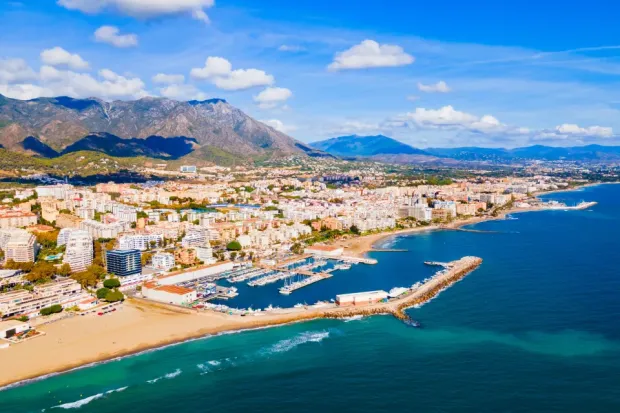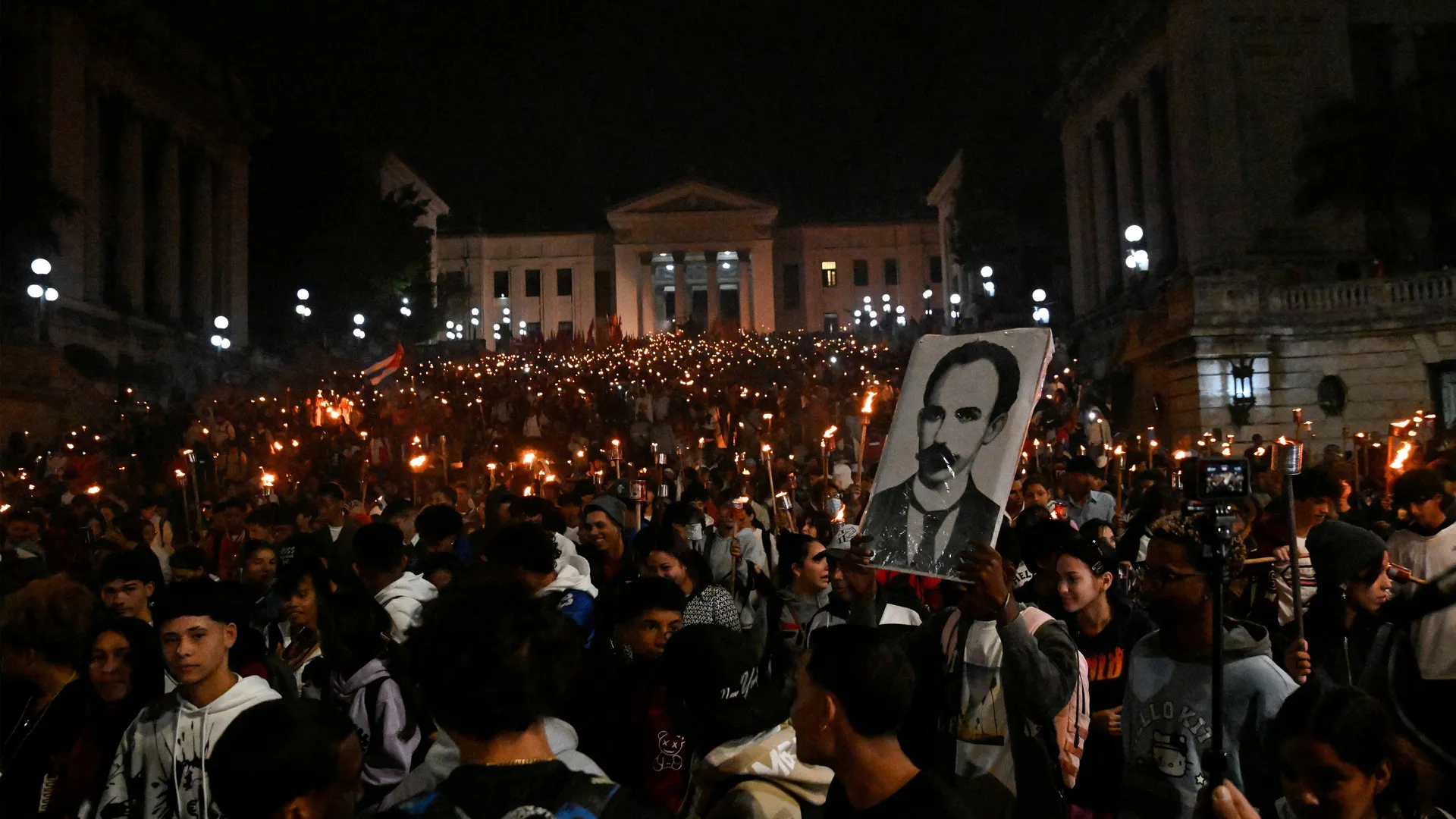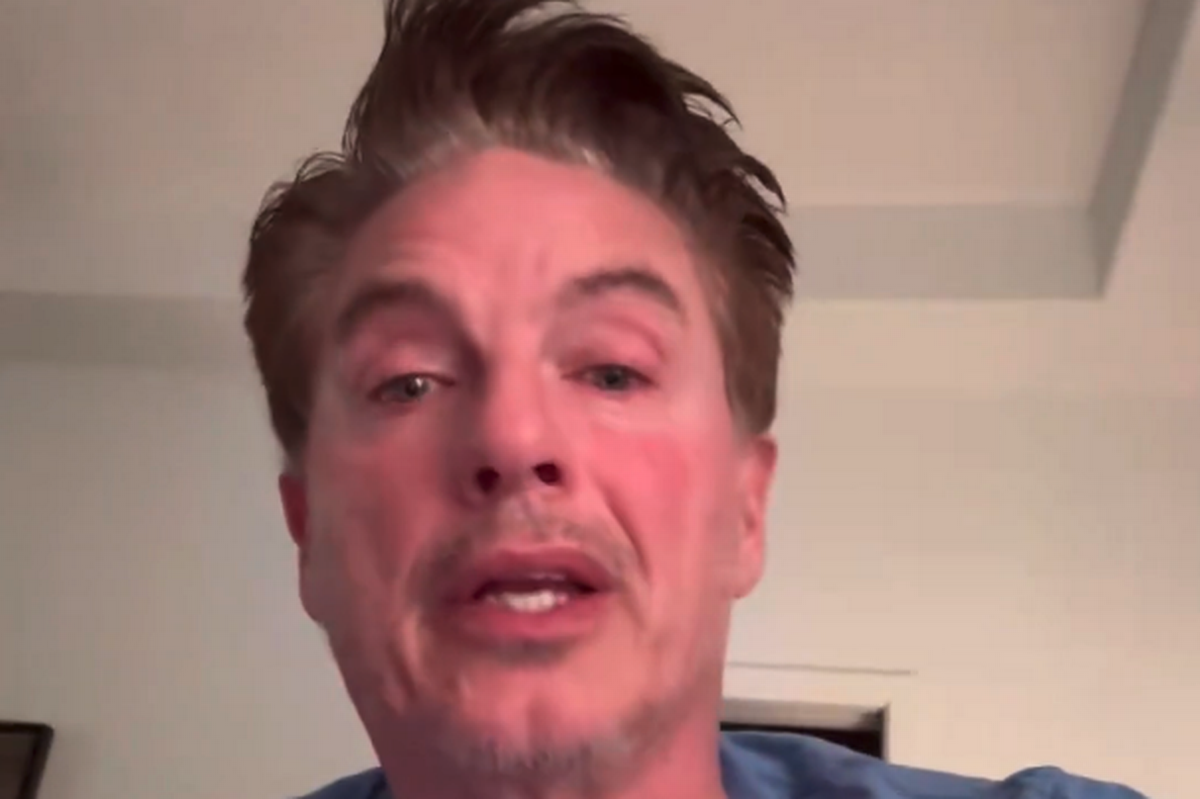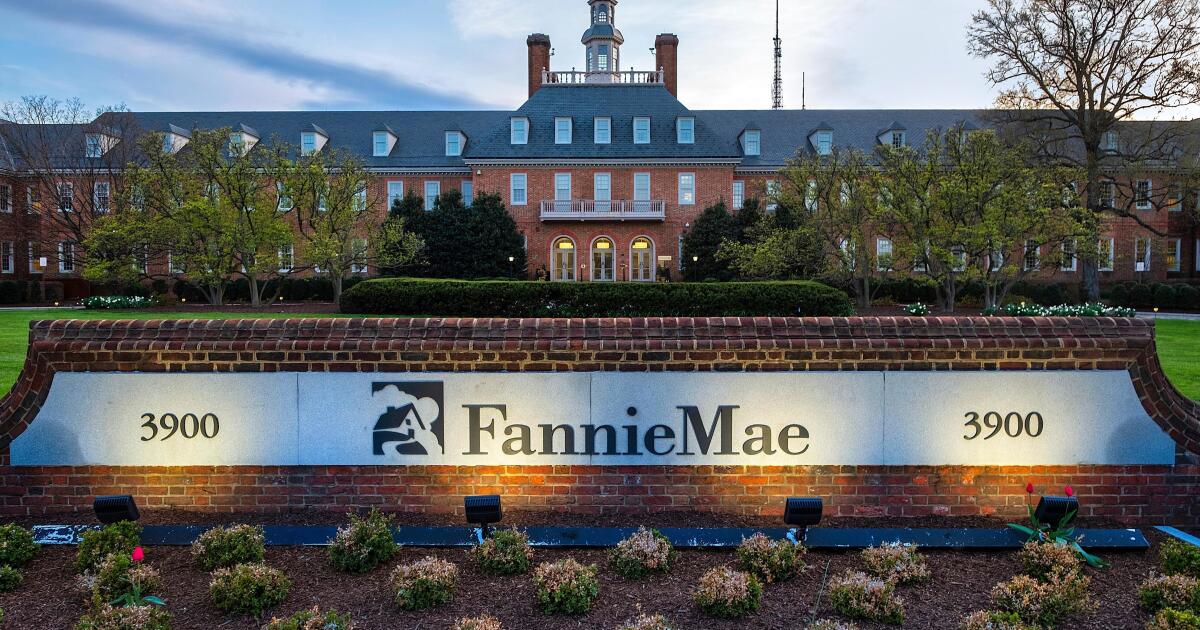Justice Dept. plans charges after activists disrupt church where Minnesota ICE official is pastor
MINNEAPOLIS — The U.S. Department of Justice said Sunday that it is investigating a group of protesters in Minnesota who disrupted services at a church where a local official with U.S. Immigration and Customs Enforcement apparently serves as a pastor.
A livestreamed video posted on the Facebook page of Black Lives Matter Minnesota, one of the protest’s organizers, shows a group of people interrupting services at the Cities Church in St. Paul by chanting, “ICE out” and “Justice for Renee Good.” The 37-year-old mother of three was fatally shot by an ICE agent in Minneapolis this month amid a surge in federal immigration enforcement activities.
The protesters allege that one of the church’s pastors, David Easterwood, leads the local ICE field office overseeing the operations that they say have involved violent tactics and illegal arrests.
U.S. Assistant Atty. Gen. Harmeet Dhillon said the Justice Department is investigating federal civil rights violations “by these people desecrating a house of worship and interfering with Christian worshipers.”
“A house of worship is not a public forum for your protest! It is a space protected from exactly such acts by federal criminal and civil laws!” she said on social media.
Atty. Gen. Pam Bondi also weighed in on social media, saying that any violations of federal law would be prosecuted.
Nekima Levy Armstrong, who participated in the protest and leads the local grassroots civil rights organization Racial Justice Network, dismissed the potential federal investigation as a sham and a distraction from federal agents’ actions in Minneapolis and St. Paul.
“When you think about the federal government unleashing barbaric ICE agents upon our community and all the harm that they have caused, to have someone serving as a pastor who oversees these ICE agents, is almost unfathomable to me,” said Armstrong, who noted that she is an ordained reverend.
“If people are more concerned about someone coming to a church on a Sunday and disrupting business as usual than they are about the atrocities that we are experiencing in our community, then they need to check their theology and they need to check their hearts.”
The website of St. Paul-based Cities Church lists David Easterwood as a pastor, and his personal information appears to match that of a man by that name identified in court filings as the acting director of the ICE St. Paul field office. Easterwood appeared alongside Homeland Security Secretary Kristi Noem at a Minneapolis news conference in October.
Cities Church did not respond to a phone call or emailed request for comment Sunday evening, and Easterwood’s personal contact information could not immediately be located.
In a Jan. 5 court filing, Easterwood defended ICE’s tactics in Minnesota such as swapping license plates and spraying protesters with chemical irritants. He wrote that federal agents were experiencing increased threats and aggression and that crowd control devices like flash-bang grenades were important to protect against violent attacks. He testified that he was unaware of agents “knowingly targeting or retaliating against peaceful protesters or legal observers with less lethal munitions and/or crowd control devices.”
ICE said in a statement: “Agitators aren’t just targeting our officers. Now they’re targeting churches, too. They’re going from hotel to hotel, church to church, hunting for federal law enforcement who are risking their lives to protect Americans.”
Black Lives Matter Minnesota co-founder Monique Cullars-Doty said that the federal prosecution was misguided.
“If you got a head — a leader in a church — that is leading and orchestrating ICE raids, my God, what has the world come to?” Cullars-Doty said. “We can’t sit back idly and watch people go and be led astray.”
Churches have also been the target of federal immigration raids in the last year. Soon after the start of President Trump’s second term, Homeland Security issued a directive rescinding a Biden-era policy that had protected areas including churches and schools from immigration raids.
Brook writes for the Associated Press.
Foreign Office issues urgent Spain travel alert – ‘significant disruption’
A warning has been issued to anyone planning to travel to Spain
An urgent alert warning of ‘significant disruption’ has been issued to anyone travelling to Spain. The warning has been circulated by the Foreign, Commonwealth and Development Office (FCDO) today (Monday, January 19).
It follows a high-speed train crash which claimed 39 lives on Sunday evening. A further 75 people were taken to hospital after two trains collided and derailed near Adamuz in the Córdoba province of the country.
The latest update released by the FCDO is entitled ‘New information about significant disruption following a serious rail incident in Andalusia’.
It reads: “On 18 January, two high‑speed trains collided near Adamuz, in the province of Córdoba in Andalusia, southern Spain. Significant disruption to rail services between Madrid and Andalusia is expected, with all high‑speed services between Madrid and Córdoba, Seville, Málaga, Granada and Huelva suspended. Services between Madrid and Cádiz, Algeciras and Granada will also be affected.
“If you need assistance or information about affected passengers, you can contact:
- ADIF: (+34) 900 10 10 20 @Adif_es
- IRYO: (+34) 00 00 14 02 @iryo_eu
- Emergency services (112 EMA): From inside Andalusia: 061; from outside Andalusia: (+34) 953 00 11 49
“If you are a British national and you or a family member have been affected by this accident and require consular support, call the nearest British Embassy or Consulate on 0034 91 714 6300.
“If you are planning to travel to Spain through France, check the travel advice for France before you start your journey. If you are planning to travel to Spain through Gibraltar, check the travel advice for Gibraltar before you start your journey. No travel can be guaranteed safe. Read all the advice in this guide.”
If you are planning to travel to Spain through Gibraltar, check the travel advice for Gibraltar before you start your journey. No travel can be guaranteed safe.
READ MORE: Binman’s ‘tear it in half’ advice ahead of new four-bin ban listREAD MORE: Dr Amir Khan says watery liquid in your yoghurt is actually ‘liquid gold’
Although some details remain unclear, it is thought a high-speed train run by Iryo travelling from Málaga to Madrid derailed before colliding with another train. The second train, which was operated by state rail company Renfe, also derailed and went down an embankment, authorities said.
“Approximately 300 people were onboard at the time of the accident,” an Iryo spokesperson said. “The derailment affected cars six through eight. The Guardia Civil and firefighters are currently working intensively at the scene to evacuate all passengers and have set up a joint emergency response team.
“Iryo deeply regrets the incident, has activated all its emergency protocols, and is collaborating closely with Adif, Renfe, and the relevant authorities to determine the causes and manage the situation as effectively as possible.”
Australian Open 2026: Iga Swiatek’s bid for career Grand Slam gets off to underwhelming start
Like Swiatek, Gauff also had issues with her serve in the first round as she committed seven double faults against Uzbekistan’s Kamilla Rakhimova.
Three of those came in the opening game, but Gauff said it was “smooth sailing from there”.
“I think I just erased that first game, and then after that I was better,” she said following the 6-2 6-3 win – her 75th Grand Slam match-win.
The two-time major singles winner added: “I tried not to put too much pressure on myself. I am only satisfied if I win, but I am proud of myself regardless of how I get on.”
Gauff, 21, will face Olga Danilovic next after the Serb defeated 45-year-old Venus Williams on Sunday.
American fourth seed Anisimova, meanwhile, needed just 60 minutes to beat Switzerland’s Simona Waltert 6-3 6-2 and underline her title credentials.
After runs to the US Open and Wimbledon final last season, Anisimova is one of the favourites go all the way in Melbourne, but she insisted she was focusing on improving as a player rather than a third successive Grand Slam final.
Fellow American Pegula, the sixth seed, also impressed with a 66-minute 6-2 6-1 victory over Russian Anastasia Zakharova.
Russian teenager Mirra Andreeva – another title contender – found herself a set down in her first-round tie against Croatia’s Donna Vekic, but the eighth seed rallied in set two and won the decider 6-0, winning 25 of the 32 points on offer.
I stayed at Premier Inn’s £21 hotels across Dubai
WHILE Premier Inn is a Brit-loved budget chain, did you know they are also open in Dubai?
Not only that, but they are even cheaper than the UK – and come with some great extra perks.
There are seven Premier Inn hotels across Dubai, having first opened in 2008.
This has since expanded across the Middle East, with a number in Doha and Abu Dhabi.
I recently stayed at the Premier Inn Al Jaddaf hotel during a recent trip to Dubai.
On arrival, I was greeted with the familiar purple colours, as the iconic sign came into view.
If it wasn’t for the towering skyscrapers and desert like landscape, I’d almost believe I was back in the UK.
The bustling lobby was filled with all kinds of groups, from families with kids to young women.
This includes a Costa Coffee, as well as Mr Toad’s Pub and Kitchen, a traditional British pub.
And on entering my room, it is exactly like the many others I have stayed in across Britain.
Purple lit headboards, tea making facilities and the simple yet functional shower rooms with complimentary toiletries.
However, it is other the amenities that set it apart from the ones we know and love back home.
Nearly all of the hotels have rooftop pools, complete with sunloungers, tables and even daybeds.
Some even have ‘New York style bars’ next to them as well.
I was really impressed with breakfast, which had all the trimmings such as cooked breakfast options, fruit and cereal, as well as options including Arabic and Indian breakfasts.
I don’t know about you, but starting the day with a roti and masala chai is certainly a treat.
Don’t forget that up to two kids under 11 can eat for free with every adult.
Other perks include an earlier check in time than the UK (2pm rather than 3pm) while some have free shuttles, and additional services such as laundry, pharmacy, and even doctors on call.
Have I tempted you? Some of the cheapest rates are found in the summer season of July and August.
But stay for three nights and rates are just 105 AED (£21.34) per night.
That’s much cheaper than the starting rate in the UK of £45 – and they never include a swimming pool, let alone one the roof.
I was left seriously impressed with the hotels, as a great way to explore Dubai on a budget.
With the average five star stay such as at Atlantis starting from £140 a night – it means you could get a week in Dubai at Premier Inn for the same price.
One of the newest hotels to stay at is Premier Inn Dubai Barsha Heights, while the hotel at Dubai Airport has recently been updated to include the new Next Evolution Style rooms, as well as an updated lobby and pool.
Others include:
- Premier Inn Dubai Silicon Oasis
- Premier Inn Dubai Dragon Mart
- Premier Inn Dubai Ibn Battuta Mall
- Premier Inn Dubai Investments Park
In the mean time, here’s why I rate Premier Inn even after staying at luxury five star hotels.
And here’s how to get a free Premier Inn breakfast.
First ever Wetherspoons opening in mainland Europe next month has one-of-a-kind pub garden and exciting new food menu
WETHERSPOONS is opening its first ever pub in continental Europe next month – and Brits heading to Spain can visit soon.
The new pub – called Castell de Santa Bàrbera – will be found at Alicante Airport.
It will be in the departures area, so Brits will be able to make the most of it while waiting for their flight home.
The pub will be set across 1,000sqft, with an outdoor terrace as well – the first pub garden of its kind at an airport departures.
It will be open seven days a week from 6am to 9pm, with food served all day until the last hour before closing.
Classics will include the standard breakfast options as well as burgers and pizzas.
Read more on wetherspoons
But Spanish dishes will also be part of the menu include omelette and garlic prawns.
You won’t have to wait long either – it’s opening next month, on February 9 at 11am.
Flights to Alicante can be found for as little as £15 with Ryanair, taking around 2h40.
Wetherspoon boss Tim Martin said: “ We are very much looking forward to opening our first pub in Spain.
“We believe it will be popular with a wide range of customers,
including those travelling home to the UK and those using the terminal
for other destinations.”
And he said there were more plans to open outside of the UK too.
He added: “We aim to open a number of pubs overseas in the coming months and years, including those at airports.”
Sir Tim suggested this could be as many as 200, across popular Spanish destinations like Benidorm and Majorca.
However, he didn’t rule out opening in winter sun hotspots too although this is yet to be confirmed.
In the mean time, there is a dupe pub called Weatherspains in Spain, which was even named a top attraction by Tripadvisor.
And also in Spain is a chain of bars dubbed the Spanish Wetherspoons.
Called 100 Montaditos, you’ll find jugs of beer for £1.50 and sandwiches for £1.
Here’s how to find the UK’s biggest Wetherspoons – and it even has a rooftop bar.
Court acquits man executed 50 years ago in nat’l security law case

The Seoul Eastern District Court on Monday posthumously acquitted Kang Eul-seong, who was executed 50 years ago for alleged ties with North Korea. File Photo by Yonhap
A Seoul court on Monday posthumously acquitted a man executed 50 years ago for allegedly attempting to rebuild an underground pro-North Korea organization in a retrial of the case.
The Seoul Eastern District Court found the late Kang Eul-seong not guilty on charges of violating the National Security Act, citing insufficient evidence.
Kang, a civilian military worker, was executed in 1976 after his arrest and torture by military counterintelligence authorities for allegedly attempting to reconstruct the Unification Revolutionary Party on alleged orders from North Korea in 1974.
The underground organization had been uncovered by South Korea’s spy agency under then President Park Chung-hee’s administration in 1968 and dismantled.
The court said it could not conclude that Kang praised or sympathized with anti-state activities for reading a paper published in North Korea.
“(Our) hearts feel heavy. Although a past wrong has been corrected, irreversible damage has already been done and the fact that it is too late leaves a sense of helplessness,” the court said. “We made the verdict in this case with a sense of contrition as the judiciary did not fulfill the expectations of the people.”
“As a member of the judiciary that made an error, I once again bow my head to apologize to the bereaved family members.”
Prosecutors had sought Kang’s acquittal in the retrial, saying that procedural truth had not been kept in the original trial. They will not seek an appeal.
The Seoul Eastern District Prosecutors Office apologized to the defendant and his bereaved family, vowing to remain faithful to its core duties.
Kang’s family expressed their intent to receive an apology not only from the judiciary but the defense ministry as well.
“The defense ministry arbitrarily dealt with the case, and we spoke of how we should receive an apology from the defense ministry,” Jin-ok, Kang’s eldest daughter told Yonhap News Agency by phone.
“We talked about how we should try for it, if it is possible,” she said. “We have fought for the past 53 years and we don’t think it will happen instantly.”
It marked the latest case surrounding the underground organization, in which the defendant was acquitted.
Four other people accused of attempting to rebuild the pro-North Korea group have been acquitted posthumously in retrials.
Copyright (c) Yonhap News Agency prohibits its content from being redistributed or reprinted without consent, and forbids the content from being learned and used by artificial intelligence systems.
Activist arrested over protesting US actions in Venezuela
Activist arrested over protesting US actions in Venezuela
Source link
Doctor Who’s John Barrowman in tears as he shares heartbreaking death announcement
John Barrowman, best known for playing Captain Jack Harkness in Doctor Who and Torchwood, has shared some devastating news with his fans
Emotional John Barrowman has shared heartbreaking news with fans.
The 58-year-old Doctor Who actor has taken to social media to announce the death of his beloved dog Captain Jack Harkness.
Posting a video on X of himself in tears next to his partner Scott Gill, holding his beloved pooch in his arms, he penned: “Captain Jack Harkness our beloved Jack Russell has gone.
“He waited until i came home and he died peacefully in his dada’s arms within an hour of my return with @scottmale, Dixie and Tito around him.
“He was a good boy, a loyal friend and our Jackamo for 18 years. We are very sad but grateful he died of old age and did not suffer. . #love #dog #companion #friend #loyalty.”
In the video, John explained that he was aware that Captain Jack was “on his way out”
The former Dancing on Ice judge has since been inundated with supportive messages from his followers, with one writing: “I feel your pain. Just awful. So sorry.”
Another added: “In tears here and just wanted to show my support at such a difficult time. I’ve been in this same place and I know… rest peacefully bestest boy. You are loved indeed.”
A third said: “I am so sorry for your loss my deepest condolences to you and your family.” A fourth posted: “I’m so sorry I lost my dog a few months ago and it’s still tough. I’m glad you got to be there and hold him one last time, Sending love.”
John is a huge dog lover, known for his own rescue dogs like Captain Jack, Charlie and Harris and Doctor Who fans will know that John played Captain Jack Harkness in the hit BBC show and spin-off series Torchwood.
The character first appeared in the 2005 Doctor Who episode The Empty Child and subsequently featured in the remaining episodes of the series as a companion to the Doctor.
Subsequent to this, Jack became the central character in the adult-themed Torchwood, which aired from 2006 to 2011.
John reprised the role for appearances in Doctor Who in its third, fourth, and twelfth series, as well as specials The End of Time, and Revolution of the Daleks.
European markets drop, gold rises as Greenland tariff threat looms
European markets opened lower on Monday as threats from US President Donald Trump reignited a trade war with traditional allies across the Atlantic.
At around 10am CET, France’s CAC 40 had slipped 1.28%, Germany’s DAX was down 1.02%, and the UK’s FTSE 100 dropped 0.27%. Spain’s IBEX 35 fell 0.59% and Italy’s FTSE MIB slid 1.43%. Meanwhile, the wider STOXX 600 fell 0.87%.
European leaders will meet this week to decide how best to respond to threats from US President Donald Trump to acquire Greenland, a semi-autonomous Danish territory.
Washington announced on Saturday that eight European countries would face a 10% tariff on their US exports from 1 February unless they support the US’ proposal to purchase Greenland. This rate will rise to 25% in June if no deal is reached.
Specifically, the threat targets Denmark, Norway, Sweden, France, Germany, the UK, the Netherlands, and Finland.
Standing firm in their support for Greenland’s right to self-determination and Denmark’s sovereignty, EU member states are weighing their options. One possibility is the use of retaliatory tariffs on €93bn of US goods, a measure that was floated then abandoned last year during an earlier trade stand-off with Washington. Another proposal includes the activation of an anti-coercion tool, which enables the EU to impose punitive economic measures on a country seeking to force a policy change.
Shares in European carmakers saw a significant drop on Monday morning, with the STOXX Europe 600 Automobiles & Parts Index falling more than 2% and hitting a 52-week low. BMW shares were down 4.10% at just after 10am CET, while Volvo and Volkswagen were down 2.21% and 3.43% respectively.
Europe’s luxury goods sector also opened lower, with the STOXX Europe Luxury 10 dropping almost 3%.
On the other hand, safe haven assets such as gold and silver hit new highs as investors moved away from riskier assets such as crypto. Bullion neared $4,700 an ounce on Monday, climbing over 1.66%, and silver prices crossed the $94 threshold.
Defence stocks also rallied in Europe, with the STOXX Europe aerospace and defence index up 0.49%. Thales rose 2.41%, Rheinmetall was up 2.89%, Leonardo shares jumped 3.05%, and BAE systems rose 1.77%.
Markets in Asia also saw a downturn. Japan’s Nikkei 225 fell 0.65%, Hong Kong’s Hang Seng dropped 1.05%, and Australia’s S&P/ASX 200 slipped 0.33%. Korea’s Kospi and China’s SSE Composite Index both bucked the trend, closing higher.
US markets are closed today for the Martin Luther King public holiday, but S&P futures slid around 1.18%.
As of around 10am CET, the dollar had fallen 0.21% against the euro.
With last summer’s trade deal between the US and the EU hanging in the balance, investors will be focused on further announcements from the two trading powers.
“The flare-up over Greenland and the threat of renewed tariffs are very unwelcome for European industry. This comes at a time when industrial sentiment has finally started to rise, with businesses seemingly having learnt to live with last year’s tariff volatility,” said analysts from ING.
“These developments will focus European minds on the need to generate domestic demand and potentially even push through sluggish reforms such as the Savings and Investment Union, to allow Europe’s capital markets to better compete with those of the US,” they added.
Markets will also be tracking announcements coming from the World Economic Forum in Davos, Switzerland, which starts this week. Trump will address the Forum on Wednesday.
Trump’s voice in Fannie Mae ad is AI-generated, with his permission
NEW YORK — What sounds like President Trump narrating a new Fannie Mae ad actually is an AI-cloned voice reading text, according to a disclaimer in the video.
The voice in the ad, created with permission from the Trump administration, promises an “all new Fannie Mae” and calls the institution the “protector of the American dream.” The ad comes as the administration is making a push to try to show voters it is responding to their concerns about affordability, including in the housing market.
Trump plans to talk about housing at his appearance this week at the World Economic Forum in Davos, Switzerland, a gathering of world leaders and corporate executives.
This isn’t the first time a member of the Trump family has used AI to replicate their voice, First Lady Melania Trump recently employed AI technology firm Eleven Labs to help voice the audio version of her memoir. It’s not known who cloned President Trump’s voice for the Fannie Mae ad.
The White House did not respond to a request for comment.
Last month, Trump pledged in a prime-time address that he would roll out “some of the most aggressive housing reform plans in American history.”
“For generations, home ownership meant security, independence and stability,” Trump’s digitized voice says in the one-minute ad aired Sunday. “But today, that dream feels out of reach for too many Americans, not because they stopped working hard, but because the system stopped working for them.”
Fannie Mae and its counterpart Freddie Mac, which have been under government control since the Great Recession, buy mortgages that meet their risk criteria from banks, which helps provide liquidity for the housing market. The two firms guarantee roughly half of the $13-trillion U.S. home loan market and are a bedrock of the U.S. economy.
The ad says Fannie Mae will work with the banking industry to approve more would-be homebuyers for mortgages.
Trump, Bill Pulte, who leads the Federal Housing Finance Agency, and others have said they want to sell shares of Fannie Mae and Freddie Mac on a major stock exchange, but no concrete plans have been set.
Trump and Pulte have also floated extending the 30-year mortgage to 50 years in order to lower monthly payments. Trump appeared to back off the proposal after critics said a longer-term loan would reduce people’s ability to create housing equity and increase their own wealth.
Trump also said on social media this month that he was directing the federal government to buy $200 billion in mortgage bonds, a move he said would help reduce mortgage rates at a time when Americans are anxious about home prices. Trump said Fannie Mae and Freddie Mac have $200 billion in cash that will be used to make the purchase.
Also this month, Trump said he wants to block large institutional investors from buying houses, saying that a ban would make it easier for younger families to buy their first homes.
Trump’s permission for the use of AI is notable given that he has complained about aides in the Biden administration using autopen to apply the former president’s signature to laws, pardons or executive orders. An autopen is a mechanical device that is used to replicate a person’s authentic signature.
A report issued by House Republicans does not include any concrete evidence that an autopen was used to sign President Biden’s name without his knowledge.
D’Innocenzio writes for the Associated Press.
Photos: Rams defeat Bears in NFC divisional playoffs
The Rams advanced to the NFC championship game with a 20-17 overtime victory against the Chicago Bears on Sunday.
The win sets up a rematch between the Rams and Seattle Seahawks, a team they beat — and lost to — during the regular season. If the Rams defeat the Seahawks, they will advance to Super Bowl LX at Levi’s Stadium in Santa Clara on Feb. 8.
Fairytale German town that inspired Disney’s Pinocchio – 3 hours from UK
Rothenburg ob der Tauber in Germany’s Bavaria is a pretty, fairytale-like destination that inspired Disney’s 1940 Pinocchio film, and it’s just three hours from the UK
Just a three-hour journey from Britain lies the enchanting, storybook town of Rothenburg ob der Tauber in Bavaria, Germany. A visit to this destination has been likened to ‘stepping into a Disney film’ – and there’s an excellent reason behind this comparison.
During the creation of the 1940 animated classic Pinocchio, Walt Disney drew visual inspiration from this stunning location for the town where Geppetto and Pinocchio resided. Rothenburg’s Plönlein, meaning ‘small place by the fountain’, stands as arguably the town’s most iconic feature, and it was this very spot that captivated Disney’s animators.
This medieval gateway to the Hospital District showcases a yellow half-timbered house alongside two towers from the ancient city walls, which have remained standing since 1360.
Emphasising the Pinocchio connection, Rothenburg’s official website states: “The Plönlein is a real world star: For many people, the half-timbered house on the Plönlein represents the typical Rothenburg old town motif.
“Starting with Walt Disney classic Pinocchio(1940), its architecture is repeatedly copied by artists, architects and designers when it comes to depicting a typical medieval European backdrop.”
Beyond Pinocchio, Rothenburg’s Plönlein has also appeared in the Tekken video game series and the Little Snow Fairy Sugar anime programme.
To reach this magnificent Bavarian destination, it’s a two-hour flight to Nuremberg Airport followed by an hour’s drive. Return flights from London Stansted to Nuremberg can be secured for just £30 with Ryanair.
After exploring the Plönlein, there’s loads more to experience in Rothenburg, including the famous Town Hall, Blade Gate, Castle Garden, the Medieval Crime Museum, and the German Christmas Museum.
Throughout the festive period, they also host the oldest Christmas market in Rothenburg, the Reiterlesmarkt, which offers traditional gifts and holiday cheer.
Check out Midcentury Modern homes during Palm Springs’ Modernism Week
Like renowned architect Frank Lloyd Wright, Frey was fascinated by the interplay between nature and architecture and the allure of the desert. He incorporated the desert terrain, including a large boulder that juts in through the living room and bedroom glass walls, into his 800-square-foot home, which features a corrugated metal roof, simple concrete slab floors and glass windows overlooking the desert.
After the tour, guests can visit the Palm Springs Art Museum and the Architecture and Design Center (300 S. Palm Canyon Drive).
A shuttle van will transport ticket holders from Palm Springs Art Museum’s Buddy Rogers Box Office to the house for the tour.
Dates with multiple times available: Feb. 12-17, Feb. 20 and Feb. 22.
Ticket: $75 (A twilight tour and champagne reception for a limited number of guests at Frey House II are available at 4:30 p.m. each evening. Tickets are $125.)
New Pasadena bakeries for pastries and gluten-free and vegan desserts
“We had a cookie, but it didn’t work because it was too gluten-free tasting,” says owner Leah Di Bernardo. “I tasked Helen Cho, our lead baker, with using brown butter to make the cookie, and she did.”
Di Bernardo and her daughter, Gigi, run the Pasadena bakery, where the cookie, and everything else at the restaurant, is gluten-free.
In the bakery case, you’ll find tender, cheesy biscuits made with almond flour, decadent doughnuts topped with passion fruit, mini Basque cheesecakes with almond and coconut flour crust and wedges of vegetable frittata.
Di Bernardo transitioned out of a career in film production in the early 2000s to open Eat Marketplace in Temecula. She grew up on a small farm in Oregon, cooked throughout Europe in the ‘80s and ‘90s and was an early adopter of the slow food movement before it had a name, or a following.
“We choose to not be too preachy, but to gently encourage people to understand the connection of your food and the beauty of your food and what it can do for all of us,” says Di Bernardo.
The Pasadena bakery and coffee shop was mostly gluten-free when it opened near the end of 2023, but after feedback from customers, Gigi and her mother transitioned the business to completely gluten-free in 2024.
The biscuits incorporate almond flour, yogurt and eggs, based on a family recipe developed by one of Di Bernardo’s sisters. For breakfast, they’re split and used to cradle eggs, bacon and cheese.
The doughnuts are baked into small rounds and glazed with chocolate, maple, matcha and seasonal fruit flavors. Recently, a passion fruit doughnut featured a dollop of the sharp, tropical fruit in the center.
“All the baked goods have always been culinary driven, or farm-to-table, before it was cool,” says Di Bernardo. “We built really strong relationships with our farmers and anything that can be upcycled, we do it.”
Pretty Spanish town that’s one of the warmest places in winter
WHEN it comes to winter sun, Brits will head to the likes of Morocco or even the Caribbean in the hope of warm weather.
But actually, you don’t need to go that far for some heat as the coastal town of Nerja in Spain is one of the warmest places in winter.
Thanks to its position on the Costa Del Sol, and its subtropical Mediterranean climate, Nerja is hot or at least mild, all year round.
Take January for example. Over the next two weeks, temperatures in Nerja are set to be as high as 17C, according to AccuWeather.
The town sees between 300 and 320 sunny days each year.
In the winter months, you can get an average of six hours of sun each day – whereas in the UK it averages between one and two.
There are plenty of beaches to bathe on too when the sun comes out, like Burriana Beach which has volleyball courts and beach restaurants.
There’s also Playa Carabeo, Playa Calahonda, and Cala Barranco de Maro which is a good spot for snorkelling.
The town is also home to one of Europe’s ‘oldest tourist attractions’ – the Caves of Nerja.
These were discovered in 1959 by a group of locals who were searching for bats.
Most read in Beach holidays
The Caves of Nerja are famous for their beautiful rock formations and hundreds of cave paintings.
While the caves only gained recognition 64 years ago, early humans had been visiting the site thousands of years earlier.
Research suggests that humans first visited the caves 41,291 years ago – 10,000 years earlier than first thought.
The Caves of Nerja is now a popular tourist attraction – visitors can take an audio-guided tour from €18 (£15.60).
At certain times of the year, the Caves of Nerja turns into a music venue and hosts an annual International Festival of Music and Dance as well as classical concerts and ballet performances.
Other attractions in Nerja include Balcon de Europa, an impressive clifftop viewpoint that gives sweeping sea views.
Better yet, it doesn’t cost anything to head up and take in the sights.
When it comes to beaches in the region of Nerja, there are plenty.
Half an hour away from Nerja is Frigiliana – which is considered one of the most beautiful towns in Spain.
It has whitewash buildings, bright blue accents on doors and window frames, terracotta tiled rooftops and mosaic streets.
The pathways are lined with colourful plant pots and there’s lots of blooming flowers like the Mediterranean pink bougainvillea.
The town was built on top of a hill and so it has incredible views of the Costa del Sol and Mediterranean Sea – but that does mean it’s hilly whichever way you go.
The nearest airport to Nerja is Malaga and from there it’s around a 45-minute drive up the coast.
In January, flights to Malaga start from £15 with Ryanair from Birmingham Airport.
This other Spanish seaside resort is even better in winter…

Deputy Travel Editor Kara Godfrey says that Marbella is even better during the winter months…
“A winter trip to the Costa del Sol resort might be without the beach clubs, but it is also minus the crowds and it’s usually still mild at around 16C, with six hours of sunshine daily.
“Despite Marbella’s reputation as a party town, this is the perfect time for a girly weekend away.
“The main attraction is the beautiful Old Town, where stark white buildings are brightened up with luminous Aperol Spritz signs and luscious green plants climb the walls.
“Uneven cobbled streets tempt you to explore at every corner – and that meant we stumbled across bar after bar, full of locals.
“There was Vinacoteca Castillejos, a simple bottle shop lined with walls of wine and a very friendly owner who let us sample a selection of his favourites.
“And, tucked down an inconspicuous alley, La Tienda proved to be another cosy affair with exposed brick walls and high-top tables. Thank goodness for my sommelier-trained companion, who never failed to find us the best vino blanco for just £5 a glass.
“To soak up the drinks, you can head to one of the many restaurants. Taberna La Niña del Pisto was my favourite – but blink and you’ll miss it.”
For more on Spain, here are some of the best resorts you’ve never heard of – where locals go on holiday.
And here’s the all-inclusive Spanish island holiday resort that is 20C in winter with £30 easyJet flights.
Actual proof you should never drink tea and coffee on a plane
A NEW study has revealed the grim reason you should avoid the hot drinks next time you’re on a plane.
For years, flight attendants have warned against it – and a new study has now backed up the claims.
Conducted by the Center for Food as Medicine and Longevity in the US, the 2026 Airline Water Study has analysed the quality of water on a number of airlines.
And the report found that a number of airlines were not up to the current water safety standards.
Looking at 10 major airlines and 11 regional airlines in the US, the quality of water was analysed over a three year period from 2022 to 2025.
Of the 35,674 sample locations for coliform (an indicator that pathogens may be in there) 949 tested positive for bacteria.
Not only that but 32 E.coli violations were found during the period – with E.coli potentially causing vomiting and diarrhea.
And while some airlines were found to have safe water – with Delta and Frontier coming on top – the majority of budget airlines fell short.
Charles Platkin, director of the Center for Food as Medicine and Longevity., said: “Nearly all regional airlines need to improve their onboard water safety.”
The study warns passengers to opt for sealed bottles of water, rather than unbottled plane water.
Not only that, but to avoid hot drinks including tea and coffee if they are made with tap water onboard.
Even washing your hands using the plane bathroom is advised against, with a hand sanitiser recommended instead.
Airlines must disinfect and flush out the water tank four times a year, or one a year but test it monthly.
Platkin previously said: “Planes come in, [and the tanks are] not being emptied and cleaned, because there is no time for that.
“The water tank is being filled on top [after] each usage. Whatever would be on the bottom stays there and sits there.”
Flight attendants have long warned passengers against drinks using the plane water tank.
Ex-cabin crew member Kat Kamalani explained on her TikTok account: “The reason being is that those water tanks are never cleaned and they are disgusting.
“So talk to a flight attendant, we rarely, rarely drink the tea or coffee, they come from the same water tank and so when you’re drinking that coffee and tea it comes from that hot water and it’s absolutely disgusting.”
Another anonymous flight attendant told Vice: “We recently had a test for E. coli in our water and it didn’t pass, and then maintenance came on and hit a couple buttons and it passed. So, avoid any hot water or tea.
Here are the best drinks you should have on a plane instead.
Wide sandy beaches and amazing seafood in western France | France holidays
Dinner comes with a spectacle in La Tremblade. Before I sit down to a platter of oysters at La Cabane des Bons Vivants, one of the village’s canal-side restaurants, I stand and watch orange flames bellow up from a tangle of long, skinny pine needles inside a large, open oven. They are piled on top of a board of carefully arranged mussels and, by setting fire to the pine needles, the shellfish cook in their own juices.
This is the curious tradition of moules à l’éclade, a novel way of cooking mussels developed by Marennes-Oléron oyster farmers along the River Seudre in the Charente-Maritime, halfway down France’s west coast. The short-lived flaming spectacle is a prelude to sliding apart the charred shells and finding juicy orange molluscs inside – and just one highlight of our evening along La Grève. The avenue that cuts between the oyster beds, lined by colourful, ramshackle huts and rustic pontoons is an alluring venue for a sunset meal by the canal, the atmosphere all the more lively and fascinating for it being in a working oyster-farming village.
I’m with my family here in the Charente-Maritime, just north of where the Gironde estuary meets the Atlantic and around an hour south of the region’s more famous resorts of Île de Ré and La Rochelle. Our five days here will show us how a holiday rolls with the same alluring vibe as those settings farther north, but costs less and has more to explore (our base is a comfortable villa in the village of Étaules), with towns such as Royan on the itinerary.
The first stop for any self-catering stay in France, though, is the market. Royan’s is out of this world. Completed in 1956, the Marché Central de Royan has a decidedly futuristic vibe; inside, the 50-metre-span dome is lit by a space-age pattern of skylights, suggesting this flying saucer might take off at any moment.
Its offerings are equally impressive, and we stock up on cheeses, including a creamy Brillat-Savarin and a fruity Comté; charcuterie, including the local terrine, le grillon charentais, and saucisson; a big blousy lettuce, crunchy cucumber and a perfumed melon. It takes some resistance to say “C’est tout, merci” when each stallholder says “Avec ceci?” (What else would you like?) after each choice, and we come away laden with bags of fresh, local goodies.
A short walk from the market is another mid-century marvel, the Église Notre-Dame de Royan. Like the market hall and much of the local housing, it was built as the town recovered from Allied bombing towards the end of the second world war and is extraordinary – especially when you catch sight of its concrete belltower and sharp angular structure above the roof-lines. Inside, it is even more impressive and is said to have provided inspiration for the audience hall in Dragonstone in the TV series Game of Thrones.
A triangular stained-glass window is framed by V-shaped pillars that tower above, punctuated by thin windows of white glass. We explore its balconies and hidden features between the concrete alcoves, before coming outside into the bright sunlight. The beach is a few steps away, but we resolve to return, when our gastronomic treasures aren’t wilting in the car.
When it comes to beaches here, we’re spoiled by choice. The children have brought bodyboards, so we head to Plage Le Vieux Phare for action on the Atlantic waves. It’s overlooked by a cartoon-like red-and-white painted lighthouse, the Phare de la Coubre. A queue is snaking from its entrance and the views from the top are said to be wonderful, but we choose to enjoy it from the beach instead – what with it being 35C.
We hike across the soft sand to the life-guarded area a short distance from the ruined old stone lighthouse. Soon we’re jumping and riding the ferocious waves and the sight of the beach, east and west, disappears in a haze of sea spray.
The beach we visit the next day is more sedate; a day trip to the Île d’Oléron takes us to Plage de Boyardville at the north of the island. Our drive takes us through pine forests and deep woods that expand across the island, which is twice the breadth of the Île de Ré. We park beneath towering pine trees and follow the path to the beach, a picnic of our market spoils in the cool bag. The boardwalk leads to a perfect crescent and a shallow lagoon in which children tumble and splash.
To my left, the silhouette of Fort Boyard looms on the horizon. The concept behind this architectural curiosity dates from the mid-17th century but it was finally completed amid tensions between the French and English in 1857. The fort was intended to guard the coast but soon became obsolete and was used as a prison. From the beach it looks quite small, but distances can be deceptive: it is in fact 68 metres long and could house 250 soldiers with 74 cannons. Recounting my hazy memories of the 1990s Fort Boyard TV game show – a kind of Crystal Maze at sea only with tigers and Dirty Den (Leslie Grantham) – warrants a raised eyebrow from my 12-year-old son.
After indulging in ice-cream sundaes at Le Café de la Plage, we head into Saint-Pierre-d’Oléron, the island’s main town. It’s late afternoon on a Sunday, so few shops are open but there’s a four-piece jazz group playing on the main street, which brings an upbeat lilt to the sleepy town. With hollyhocks swaying in the breeze, white-washed, green and grey-shuttered houses, and long early evening shadows, it is reminiscent of the Île de Ré, only a little scruffier, which adds to its charm. We browse the shops that are open and wander back to the car, feeling sleepy and sun-kissed.
As we drive over the bridge back to the mainland, the tide has come in under it, and several aluminium oyster-catching boats are speeding by beneath.
The village of Mornac-sur-Seudre to the south is also reminiscent of the Île de Ré, with its white-washed houses, creeping wisteria and bright pink oleander bushes. We go early evening for a sundowner, next to its own waterway and oyster beds, and see more moules à l’éclade going up in flames outside the seafood restaurant Le Parc des Graves. We window-shop the gift shops and galleries, annoyed we didn’t get there earlier.
La Tremblade is our favourite though, and so we return to La Grève for a final meal at La Cabane de la Grand-Mère, which does its mussels differently – moules à la brasero. The recipe, borrowed from oyster-farming communities near the Mediterranean, sees them marinated with herbs, onions, white wine and olive oil and then cooked on a griddle over a fire. After swigging back a platter of briny oysters, we tuck into the steaming pots of mussels and agree these are the best we’ve ever eaten. I ask the owner how they are cooked and she tells me the recipe. “All the very best flavours!” she laughs. When I say how they’re even better than moules à l’éclade, she smiles and says: “Ah but, with the éclade, it’s a much bigger spectacle! The flames are amazing!” I can’t disagree.
Transport from Portsmouth to Caen was provided by Brittany Ferries; return crossing from £224 for a car and a family of four. For more information on the area, see infiniment-charentes.com
Monday 19 January Sonam Lhosar around the world
The word Lhosar means New Year or beginning of a new era and Sonam Lhosar is the Tamang New Year.
Tamangs are indigenous people from Nepal. They have their own culture and dialects which distinguish them from other ethnic groups. Tamang means Horse Traders. In Nepal, the main Tamang community is located in the central highlands as well around Kathmandu Valley
Tamangs divide their years into 12 cycles, each represented by a zodiac animal, following the same order as Lunar New Year. In Nepal when there was no calendar, the 12 rotation system was used to calculate peoples’ ages.
Like other communities, the Tamangs celebrate their new year festival with great joy and religious fervour which lasts for five to fifteen days from place to place.
The Tamang community believes that Lord Buddha was born on the first day of the new moon, in the month of Magha. Therefore the first day of the festival is believed to be the most significant one. On this day, the main celebrations and dances take place.
Sonam Lochar is marked by offering prayers at monasteries. People also visit their relatives to seek blessings from the elders of the family. People wear colourful traditional outfits to mark the importance of the day in their lives.
The festival also sees Tamangs display their cultural heritage by engaging in traditional music and dance performances. Tamang Selo, a special group dance of the community, is performed with great enthusiasm. Many of the dances are performed to the beat of the damphu, a traditional drum.
How much of Trump’s foreign policy is driven by minerals and oil? | Energy
Oil industry expert Daniel Yergin argues that the US is desperate to have supply chains independent of China.
China’s domination of minerals – especially the copper needed for electrification, data centres, robots, cellphones and defence technology – is pushing the United States to ramp up its control of oil and minerals worldwide, argues Daniel Yergin, one of the world’s top experts in the economics of oil.
In this episode, Yergin explains how Venezuela, Greenland, Iran, Russia and other issues are connected to the business of oil and the competition to control Earth’s minerals. And while US President Donald Trump’s motives in Venezuela and Greenland are unclear, Yergin says one thing is certain: The US is desperate to achieve supply chain independence from China.
Published On 18 Jan 2026
Chile forest fire death toll rises to 16 as state of emergency declared | Climate Crisis News
Chilean President Gabriel Boric has announced a state of emergency in two southern regions.
Published On 18 Jan 2026
Two dozen active forest fires are tearing across southern Chile, forcing more than 50,000 people to flee their homes and killing at least 16 people, authorities have said.
Security Minister Luis Cordero told reporters at a press conference on Sunday that 15 deaths had been confirmed in the Biobio region, bringing the total to 16 after the government previously reported one death in Nuble.
Recommended Stories
list of 3 itemsend of list
Biobio and Nuble – central-southern regions located about 500km (300 mi) south of the capital, Santiago – have faced the blazes’ worst effects.
President Gabriel Boric declared a state of emergency in both regions earlier on Sunday, writing on X that “all resources are available” to contain the fires. The declaration allowed Chile’s armed forces to start pitching in.
The majority of the evacuations have taken place in the cities of Penco and Lirquen, located in Biobio, authorities said. Together, the cities are home to around 60,000 people.
Interior Minister Alvaro Elizalde said unfavourable weather conditions in the coming days – particularly extreme temperatures – were expected to make firefighting efforts more difficult.
“We face a complicated situation,” he added.
The fires have torched around 85sq km (33sq mi) across Biobio and Nuble, prompting the mass evacuations. At least 250 homes have been destroyed so far.
South-central Chile has been battered by forest fires in recent years, with simultaneous blazes in February 2024 leading to the deaths of more than 130 people.
At the time, Boric called it the “greatest tragedy” the Latin American country had faced since a 2010 earthquake that killed at least 500 people.
‘Zootopia 2’ is the highest-grossing U.S. animated movie of all time
Walt Disney Co.’s “Zootopia 2” is now the highest-grossing U.S. animated film of all time, the company said Sunday.
The animated sequel to 2016’s “Zootopia” raked in $1.7 billion in worldwide box office revenue as of Sunday. The movie edges out the previous record holder, “Inside Out 2.” The 2024 Disney and Pixar hit grossed $1.69 billion.
Disney Entertainment Co-Chairman Alan Bergman noted the film’s international appeal in a statement Sunday about the new record.
“This milestone belongs first and foremost to the fans around the world whose enthusiasm made it possible,” he said in the statement.
The film has earned the bulk of its money overseas, with an international box office total of $1.31 billion. In the U.S. and Canada, “Zootopia 2” has made $390 million.
The movie’s largest international haul has come from China, where “Zootopia 2” grossed $610 million thus far.
The first “Zootopia” was a surprise hit in China, where audiences connected with rabbit cop Judy Hopps’ storyline of moving from a small rural village to the big city, as well as the unconventional relationship between Judy and her partner Nick Wilde, a fox, Disney executives have said.
Disney then built on that popularity by opening a “Zootopia”-themed land in Shanghai Disneyland — the only such themed area in any Disney park.
But the warm response in China was not a given.
A decade ago, Hollywood blockbusters that got government approval could count on the China market to boost their international box office totals.
But since the COVID-19 pandemic, the recent geopolitical tensions between the U.S. and China and the growth of the local film industry, that kind of reception has been much more unreliable.
The last Disney film that was released in China and earned more than $100 million was 2024’s “Alien: Romulus.”
What is the EU’s anti-coercion instrument, and how does it work?
Pressure is growing on European leaders to deploy its trade bazooka against the United States after President Donald Trump threatened fresh tariffs if Denmark does not agree to sell the territory of Greenland. In a scenario of coercion, the EU counts with a powerful tool in the anti-coertion instrument, and calls are intensifying for Brussels to trigger it.
But how does it work? Euronews explains:
What is the anti-coercion tool?
Adopted in 2023, the tool was designed with the US and China in mind as the world’s two biggest economies become more assertive in pushing their national interests through tariffs and the weaponisation of natural resources.
Under the existing legislation, economic coercion exists when a third country “applies or threatens to apply measures affecting trade or investment in order to prevent or obtain the cessation, modification or adoption of a particular act by the European Union or a member state.”
President Trump is threatening tariffs from February 1 ranging from 10% to 25% if Denmark does not agree to sell Greenland by June. On paper, it looks like coercion.
Why is the anti-coercion tool seen as bazooka?
Last year, the EU mulled different options of possible retaliation as the US threatened to hammer the bloc with tariffs on Liberation Day.
Brussels drew up a list of American items that would be hit, affecting states mostly ran by Republican governors, in a tit-for-that move. At the peak of transatlantic tensions, the EU said it would target €93 billion worth of goods including bourbon, airplane components which would have dented Boeing, soybeans and poultry among other items.
Ultimately, the EU decided not to retaliate and took a deal which tripled tariffs on the bloc to 15% while cutting duties to zero on American industrial goods. While the deal was seen as imbalanced and unfairly tilted in favour of Washington, the Commission said it had provided clarity and stability for businesses in a difficult geopolitical scenario.
At the time, the idea of using the trade bazooka was only floated, but never seriously considered. That is because the anti-coercion tool was seen as the nuclear option.
The ACI allows the EU to shut off access to the European single market representing 500 million consumers. It limits trade licenses and access to public procurement tenders. For American services, it means the European market would be off the table.
How is coercion established and how long does it take?
The tool is not automatic, and it takes time to implement. For many, the power behind it comes in the form of deterrence. Once the trade bazooka is out, it is clear that the EU means business and is willing to enter a fight with the single market as leverage.
Once the question of coercion is raised, the European Commission has four months to assess the case and the actions of the third country in question, after which EU member states must decide by qualified majority whether to activate the instrument or not.
If that happens, a negotiation phase with the country in question begins.
If talks fail, the EU can deploy a broad range of countermeasures beyond tariffs.
The tool covers services, investments and access to public procurement. It also allows for steps such as excluding foreign companies from EU tenders or partially suspending the protection of intellectual property rights.
The implications are such, that any response under the ACI must be “proportionate and not exceed the level of injury to the European Union”.
What are the implications for the EU?
There are many second-round effects. The first one stems from the fact that the ACI has never been used. Member states have often talked about it, but don’t really know what kind of implications it could bring about on political and geoeconomic terms.
This is why countries from Germany to Italy have repeatedly cautioned against deploying it too quickly or without a good legal case behind it. Berlin and Rome were two of the member states most in favour of cutting a deal with the US last year.
Last year, even as the US threatened to punitive tariffs on the bloc, the EU also feared that deploying such strong measures against the US could backfire and damage the transatlantic relation. The EU still hopes to keep Washington engaged in the continent’s security through NATO and discussions around Ukraine’s peace settlement.
Beyond the US, the EU also considered triggering the ACI after China began weaponising the export licensing of rare earth and critical minerals – vital for Europe’s tech and defence industries – at the end of last year. Ultimately, the EU opted for dialogue.
So, what happens next?
The EU could decide this time around President Trump has crossed the line and gather a qualified majority to trigger the anti-coercion instrument. European leaders have said they will not be “blackmailed” and expressed full solidarity for Denmark and Greenland.
If they go ahead, that will likely mean a new trade war and fresh escalation, but it may be the price to pay for the European Union to defend the sovereignty of a member state.
Unlike the EU-US deal signed last year where a compromise was deemed possible, Copenhagen has repeatedly said there is no room for negotiation when it comes to transferring the sovereignty of Greenland and has rejected any possibility of a sale.
The EU could go back to the retaliatory tariffs it drew up last year and – this time around – implement them hoping the impact on US companies and consumers ahead of the midterm elections where Republicans risk losing control of the House of Representatives and the Senate prompts Trump to change course.
One thing is clear, if the tariffs on Denmark and its allies go into effect on February 1, the European Union and the United States will enter a new trade war.
































